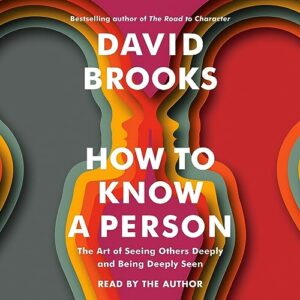
One hundred and nine years ago, on Christmas Eve, something very unusual happened on the outskirts of Paris. Think with me for a moment, about the miraculous Christmas Truce of 1914.
On August 1, 1914, Germany declared war on Russia. Two days later, Germany declared war on France and immediately sent its army to capture and occupy Paris.
Forty three miles outside of Paris, the German army was stopped at the battle of Marne. That area soon became one of the main battlegrounds of WW1. It was called the Western front—a 400-mile battle line that stretched from Switzerland through France and Belgium to the North Sea.
The Germans were on the eastern side, the French and Belgiums on the western side and a no-man’s-zone was between the two sides. In places along the front the German and French trenches were only 50 yards apart. It was a brutal battleground — hand-to-hand combat in muddy trenches. The soldiers often fought with mustard gas and bayonets. Progress by either side was very slow—measured by yards not miles.
Late on Christmas Eve, 1914, just five months after the war began, one of the most unusual events in the history of modern warfare took place on the Western Front. Members of the French army heard German soldiers singing Christmas carols from their trenches. Soon, the French and Belgium soldiers joined in, and all night long both sides sang Christmas carols together.
Early the next morning, on Christmas Day, soldiers came out of their trenches into the no-man’s-zone and began visiting, exchanged gifts, and even played soccer together. Instead of fighting and killing one another, they found and enjoyed the common bonds that unite all humans—prompted by the message and traditions of Christmas.
It was a spontaneous and undeclared truce. It was called the Christmas Truce of 1914, and It happened at many locations along the 400-mile Western Front.
Sadly, 24 hours later, the truce was over. The troops returned to their trenches, loaded their weapons, and resumed the war. The war on the Western Front lasted for another three and a half years, until the war ended. During those years, twenty million people were killed (10 million soldiers and 10 million civilians) and 21 million people were wounded.
The Christmas Truce of 1914…only lasted one day.
What lessons can we learn from this unusual event in history, that started well but ended abruptly?
1. Peace among men is rare and fleeting.
In the original Christmas story, as recorded in the Bible, an angelic hosts announced Jesus’ birth to a group of shepherds. The angels proclaimed, “Glory to God in the highest. And on earth, peace and goodwill among men.”
But where’s the peace promised at the birth of Christ? Were the angels just being overly optimistic when they proclaimed peace on earth? Were they just caught up in the joy and ecstasy of the moment?
If we’re not careful, we will misinterpret the angels’ promise of peace, because in the history of mankind, there has never been sustained peace on earth.
-
-
- For instance, there has always been war between nations. Wars and rumors of war. Historians generally agree that there has never been a time in human history that there wasn’t a war being waged somewhere on earth. Today, wars are taking their toll in Ukraine, Russia, between Israel and Hamas, South Sudan, Syria, Yemen.
- And, there is no peace even in our own government. Not since the Civil War has our nation been so politically divided and fractious.
- And, day-by-day, our personal relationships are strained. Arguments, bitterness, and unforgiveness are pervasive.
So where’s the peace?
I think the answer to what seems to be misinformation, can be explained by the difference between collective peace and individual peace.
Collective peace is peace among groups of people – among nations, states, religious groups, and tribes. But sustained peace among people-groups will not occur until we all, someday, stand before Christ, the Prince of Peace, and He rules the nations on earth.
But individual peace is available to each of us – now and at all times. Isaiah referred to this personal peace when he said “You Lord, will give perfect peace to those whose minds are focused on you and trust in you.” Jesus told his disciples that in the world you will have tribulation, but in me you can have peace.
So while peace among men is rare and fleeting, our personal peace with God can be assured and constant.
Another lesson to be learned is that we can and should…
2. Extend the spirit of Christmas to every day of the year.
It’s been said that Christmas Day is the only day of the year when most people are kind and civil toward one another. At Christmas we’re more thoughtful, kind, generous, less self-centered, more compassionate and grateful, more aware of beauty, and we spend time with People we love.
Could it be that our celebration of Christmas could serve as a reminder of how we should treat one another the other 364 days of the year. If so, Christmas would be an annual recalibration of our thoughts, priorities, and behaviors.
If the soldiers had extended the Christmas truce, 20 million fatalities could have been avoided.
Another lesson to learn from the Christmas Truce of 1914 is…
3. Do not underestimate the positive impact that peaceful moments can have on our lives.
Those soldiers on Christmas Eve, 1914 did have peace for 24 hours.Yes, it was temporary, but it was real and impactful. Those hours must have been cathartic and wonderful. It gave immediate relief from the stress and trauma of war and gave hope of what peace could look and feel like.
In like manner, in our lives, sometimes a break—even a short break—can be immensely helpful. It can be like a cup of cool water on a parched throat. It can give us the strength to carry on.
For instance, for a moment, consider the peace that we’re experiencing in this sanctuary, right now. Look around you and sense the beauty of the chancel area, the comfort of hearing traditional Christmas carols, and consider the people you are with tonight. This is a place of peace, and the short time we spend here is a respite; it’s a pause in the daily grind, and a sample of the peace that is available whenever we “focus our minds on God.”
I think this is one of the great advantages of attending weekly worship services. It’s one of the reasons Paul told us to not forsake gathering together on a regular basis. Weekly, we can enter a sacred place, remind ourselves of the gospel message of Jesus, and recalibrate our thoughts and perspectives.
In a moment we’re going to sing one of the Christmas carols the soldiers sang at the Western front, 109 years ago. The Germans sang Stille Nacht, Heilige Nacht, the French sang Douce Nuit, Sainte Nuit, in English we sing Silent Night, Holy Night.
As we sing together, enjoy the peace and tranquility of this place and time and embrace the promise that God will be with you and will give you peace throughout your life.


 Book – How To Know A Person — the Art of Seeing Others Deeply and Being Deeply Seen by David Brooks. This book is actually my favorite book of the decade. I’ve bought copies for all my direct reports; in 2024 we’ll process the book together one chapter a week.
Book – How To Know A Person — the Art of Seeing Others Deeply and Being Deeply Seen by David Brooks. This book is actually my favorite book of the decade. I’ve bought copies for all my direct reports; in 2024 we’ll process the book together one chapter a week. Travel Moment – On the last day of the Travel with Friends trip to the British Isles, we visited the Beaches of Normandy where the D-Day invasion commenced. It is a quiet, reflective place that includes 9,387 graves where U.S. soldiers are buried. Suddenly, two Mirage fighter jets flew over the cemetery at low altitude and tipped their wings. The sound was deafening; it literally shook the earth. I wept. My son-in-law, who was a flight surgeon on an F-16 squadron, once tried to describe to me the thunderous sound of fighter jets in flight, but I did not understand, until that moment on Omaha Beach.
Travel Moment – On the last day of the Travel with Friends trip to the British Isles, we visited the Beaches of Normandy where the D-Day invasion commenced. It is a quiet, reflective place that includes 9,387 graves where U.S. soldiers are buried. Suddenly, two Mirage fighter jets flew over the cemetery at low altitude and tipped their wings. The sound was deafening; it literally shook the earth. I wept. My son-in-law, who was a flight surgeon on an F-16 squadron, once tried to describe to me the thunderous sound of fighter jets in flight, but I did not understand, until that moment on Omaha Beach. Wine – In this annual “best of” list I usually share the name of the best wine I had during the year. But this time I’ll share a good suggestion on how to buy wine.
Wine – In this annual “best of” list I usually share the name of the best wine I had during the year. But this time I’ll share a good suggestion on how to buy wine. friends I have on earth – members of the Stonebriar Community Church music ministry. I love the staff and each musician who serves. Here’s a picture of our 2023 Christmas concert.
friends I have on earth – members of the Stonebriar Community Church music ministry. I love the staff and each musician who serves. Here’s a picture of our 2023 Christmas concert. Concert – In September I was with 48 friends in London at St Martin-in-the-Fields church near Trafalgar Square. The evening candlelight concert featured music by Bach and Handle performed by a 15-voice choir and strings. I heard sounds I had never heard before. The packed sanctuary of around 400 people were transported to another time and place.
Concert – In September I was with 48 friends in London at St Martin-in-the-Fields church near Trafalgar Square. The evening candlelight concert featured music by Bach and Handle performed by a 15-voice choir and strings. I heard sounds I had never heard before. The packed sanctuary of around 400 people were transported to another time and place.  Fun experience – In March, Mary and I had the privilege of leading worship on Chuck and Cynthia Swindoll’s trip to Israel. It was our sixth time to travel to Israel with Insight for Living. Chuck is one of the greatest men I have ever known.
Fun experience – In March, Mary and I had the privilege of leading worship on Chuck and Cynthia Swindoll’s trip to Israel. It was our sixth time to travel to Israel with Insight for Living. Chuck is one of the greatest men I have ever known.  Family event – In October, my daughter Sarah gave birth to Claire Elise. Claire spent the first three weeks of her life in the NICU and then came home a healthy, robust baby. She has infused our household with a new sense of joy and excitement. She affirms my long-held belief that grandchildren are God’s reward for not having killed your own.
Family event – In October, my daughter Sarah gave birth to Claire Elise. Claire spent the first three weeks of her life in the NICU and then came home a healthy, robust baby. She has infused our household with a new sense of joy and excitement. She affirms my long-held belief that grandchildren are God’s reward for not having killed your own.
